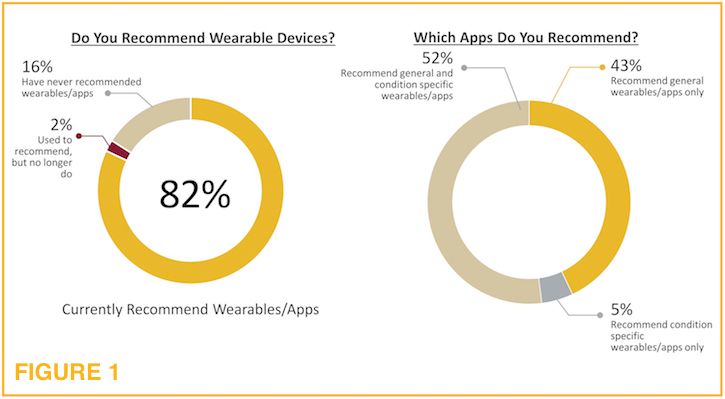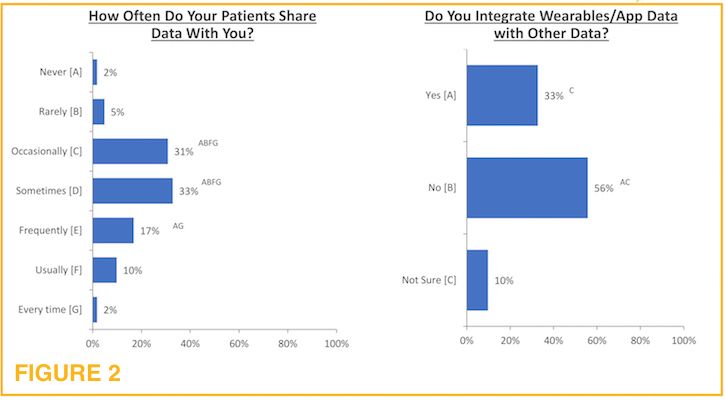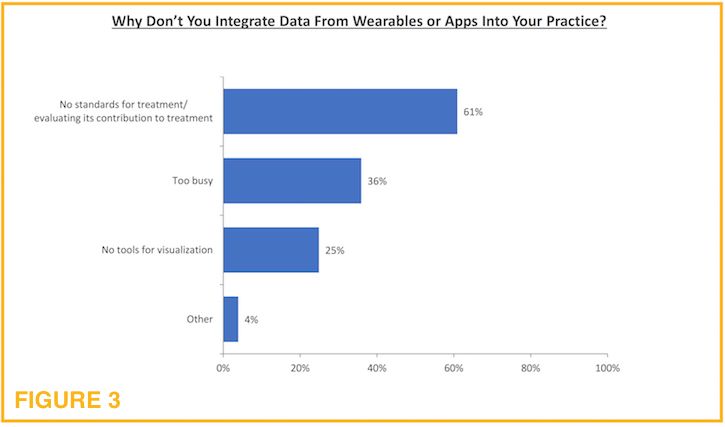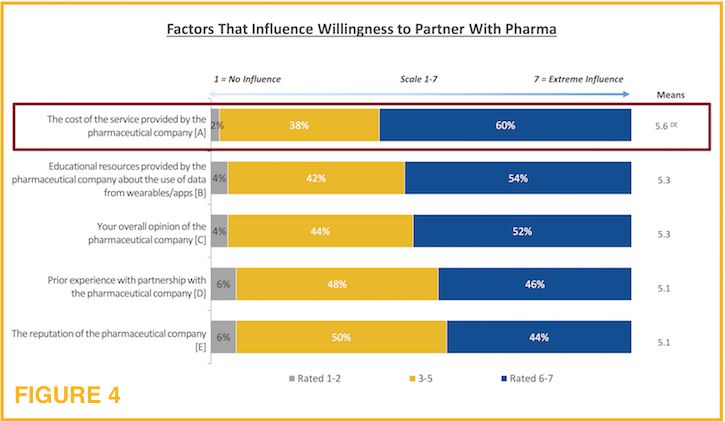Original Research: MDs Are Increasingly Recommending Wearables
The second part of our exclusive study looks at why doctors recommend wearables to their patients–and why some don’t.
Healthcare Analytics News™ is the official publication of Healthcare Research & Analytics® (HRA®), a healthcare market research practice with a particular focus on the hospital setting and specializations in managed markets, oncology, and pharmacy. As part of our partnership, we are able to publish exclusive research on key topics in the evolving field of health tech. This is the second entry in a 4-part research program on the ways that patients and providers are using data from wearables and mobile applications. Part 1 can be viewed here.
In part 2 of a 4-part research program, HRA® examined the ways that physicians are using data from wearables and apps in their practices. This research, conducted with 50 primary care physicians (PCPs) who self-reported that they were at least somewhat familiar with wearable technology, indicates that 4 of 5 PCPs recommend that their patients use wearables and apps (Figure 1). Of those who make such recommendations, more than half recommend both general wearables/apps (eg, Fitbit) and condition-specific devices (eg, those used to monitor specific medical conditions, such as diabetes; Figure 1).

(Click chart to expand)
In total, 93% of respondents indicated that their patients shared data from wearables or apps with them at least occasionally (Figure 2). Interestingly, only one-third of PCPs indicated that they integrated the data they receive from their patients with other sources of data in their practice (Figure 2). When probed further, 61% of those who do not integrate the data stated that they did not do so because of a lack of standards for how to incorporate the data into their treatment plan (Figure 3).


These findings reveal a significant unmet need. Although physicians are collecting data from their patients, the data collected is being underutilized. This presents a potential opportunity for pharmaceutical companies, as data from condition-specific apps could be used by physicians to alter patients’ treatment plans, were the data fully integrated into their systems.
In a follow-up survey conducted with 50 additional PCPs, physicians indicated that they would be willing to work with pharma on standards and tools for using data from wearables, provided that the price is right (Figure 4).

The wearables space is currently flourishing, with some partnerships between major players already taking place. For example, late last year, Fitbit teamed with One Drop, a diabetes management platform that combines glucose monitoring with mobile technology, to provide information to users about how their daily activity may impact health outcomes. Partnerships such as these will significantly enhance the richness of mobile data available to physicians. As such, standards and tools for interpreting and utilizing this data will only become more valuable as the field evolves.
Healthcare Research & Analytics® (HRA®) is a consultative healthcare market research practice leveraging a flexible spectrum of solutions to support decision making and strategy development across healthcare channels, with a particular focus on the hospital setting and specializations in managed markets, oncology, and pharmacy. Our team of highly experienced market researchers combines domain expertise in healthcare, science, technology, and statistics with a passion for uncovering insights.
Newsletter
Get the latest hospital leadership news and strategies with Chief Healthcare Executive, delivering expert insights on policy, innovation, and executive decision-making.